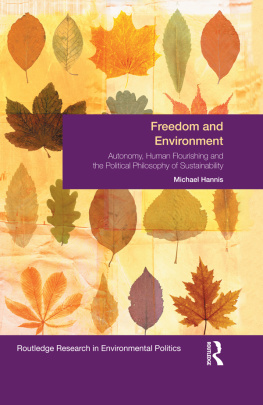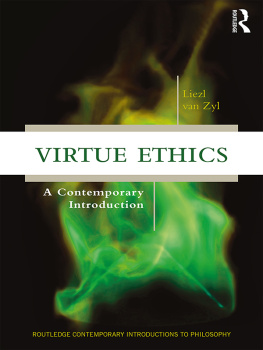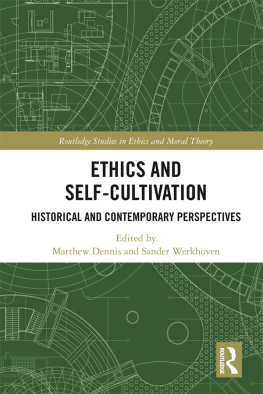Katarzyna Beilin - Ethics of Life: Contemporary Iberian Debates
Here you can read online Katarzyna Beilin - Ethics of Life: Contemporary Iberian Debates full text of the book (entire story) in english for free. Download pdf and epub, get meaning, cover and reviews about this ebook. year: 2016, publisher: Vanderbilt University Press, genre: Politics. Description of the work, (preface) as well as reviews are available. Best literature library LitArk.com created for fans of good reading and offers a wide selection of genres:
Romance novel
Science fiction
Adventure
Detective
Science
History
Home and family
Prose
Art
Politics
Computer
Non-fiction
Religion
Business
Children
Humor
Choose a favorite category and find really read worthwhile books. Enjoy immersion in the world of imagination, feel the emotions of the characters or learn something new for yourself, make an fascinating discovery.

- Book:Ethics of Life: Contemporary Iberian Debates
- Author:
- Publisher:Vanderbilt University Press
- Genre:
- Year:2016
- Rating:3 / 5
- Favourites:Add to favourites
- Your mark:
- 60
- 1
- 2
- 3
- 4
- 5
Ethics of Life: Contemporary Iberian Debates: summary, description and annotation
We offer to read an annotation, description, summary or preface (depends on what the author of the book "Ethics of Life: Contemporary Iberian Debates" wrote himself). If you haven't found the necessary information about the book — write in the comments, we will try to find it.
Ethics of Life: Contemporary Iberian Debates — read online for free the complete book (whole text) full work
Below is the text of the book, divided by pages. System saving the place of the last page read, allows you to conveniently read the book "Ethics of Life: Contemporary Iberian Debates" online for free, without having to search again every time where you left off. Put a bookmark, and you can go to the page where you finished reading at any time.
Font size:
Interval:
Bookmark:

Ethics of Life: Contemporary Iberian Debates
HISPANIC ISSUES VOLUME 42
Ethics of Life: Contemporary Iberian Debates
Katarzyna Beilin and William Viestenz
EDITORS
Vanderbilt University Press
NASHVILLE, TENNESSEE
2016
2016 Vanderbilt University Press
All rights reserved
First Edition 2016
This book is printed on acid-free paper.
Manufactured in the United States of America
The editors gratefully acknowledge assistance from the College of Liberal Arts and the Department of Spanish and Portuguese Studies at the University of Minnesota; and the Department of Spanish and Portuguese at the University of Iowa
The complete list of volumes in the Hispanic Issues series begins on .
Library of Congress Cataloging-in-Publication Data on file
LC control number 2015042855
LC classification number GE42 .E8445 2015
Dewey class number 179/.10946dc23
Full record available at lccn.loc.gov/2015042855
ISBN 978-0-8265-2091-3 (hardcover)
ISBN 978-0-8265-2092-0 (paperback)
ISBN 978-0-8265-2093-7 (ebook)
HISPANIC ISSUES
Nicholas Spadaccini, Editor-in-Chief
Luis Martn-Estudillo, Managing Editor
Ana Forcinito, Associate Managing Editor
Nelsy Echvez-Solano, Megan Corbin, and William Viestenz, Associate Editors
Cortney Benjamin, Scott Ehrenburg, Heather Mawhiney, and Pablo Rodrguez Balbontn Assistant Editors
*Advisory Board/Editorial Board
Rolena Adorno (Yale University)
Romn de la Campa (Unversity of Pennsylvania)
David Castillo (University at Buffalo)
Jaime Concha (University of California, San Diego)
Tom Conley (Harvard University)
William Egginton (Johns Hopkins University)
Brad Epps (University of Cambridge)
David W. Foster (Arizona State University)
Edward Friedman (Vanderbilt University)
Wlad Godzich (University of California, Santa Cruz)
Antonio Gmez L-Quiones (Dartmouth College)
Hans Ulrich Gumbrecht (Stanford University)
*Carol A. Klee (University of Minnesota)
Germn Labrador Mndez (Princeton University)
Eukene Lacarra Lanz (Universidad del Pas Vasco)
Tom Lewis (University of Iowa)
Jorge Lozano (Universidad Complutense de Madrid)
Ral Marrero-Fente (University of Minnesota)
Kelly McDonough (University of Texas at Austin)
Walter D. Mignolo (Duke University)
*Louise Mirrer (The New-York Historical Society)
Mabel Moraa (Washington University in St. Louis)
Alberto Moreiras (Texas A & M University)
Bradley Nelson (Concordia University, Montreal)
Michael Nerlich (Universit Blaise Pascal)
*Francisco Ocampo (University of Minnesota)
Antonio Ramos-Gascn (University of Minnesota)
Jenaro Talens (Universitat de Valncia)
Miguel Tamen (Universidade de Lisboa)
Teresa Vilars (Texas A & M University)
Iris M. Zavala (Universitat Pompeu Fabra, Barcelona)
Santos Zunzunegui (Universidad del Pas Vasco)
Contents
Katarzyna Beilin and William Viestenz
Carmen Flys-Junquera and Tonia Raquejo
John H. Trevathan
Eugenia Afinogunova
Katarzyna Olga Beilin
Matthew Feinberg and Susan Larson
Luis I. Prdanos
Pablo de Lora
Paul Begin
Sainath Suryanarayanan and Katarzyna Olga Beilin
Daniel Ares Lpez
William Viestenz
John Beusterien
Sebastiaan Faber
Martn Lpez-Vega and Luis Martn-Estudillo
Introduction
Ethics of Life: Contemporary Iberian Debates
Katarzyna Olga Beilin and William Viestenz
Among all the factors which have emerged with increasing visibility in the twenty-first century that contribute to changes in the definition of life and open new questions about its ethical treatment, the following are the most important for this volume: the raising of collective consciousness regarding ecological crises and especially climate change; the emerging biotechnologies of plant, animal, and human life enhancement developed in part as an answer to this crisis; and the consideration of nonhuman species as deserving of rights, which is possibly a resistance to the growing industrialization of agricultural practices. As these are debated in the context of present and future policy development, the historical archive is also revised as bioeconomy reconsiders the worth and the purpose of life. In the neoliberal economic framework, life becomes not only a means but also a material of production and is integrated into the market exchange processes driven by new biotechnologies. Todays multifaceted crisis, happening simultaneously in ecological, political, and economic contexts, intensifies the alliance between science and economy, which claim to be able to maintain and enhance present quality of life through innovations focused on integrating all life, including intellectual life, into the market exchange. The need for financial profit motivates and manipulates the mission of research at the university and the notion of common good. In this framework, the humanities are expected to form public opinion in favor of scientific innovations of life. In the best tradition of cultural studies, however, this volume proposes to question rather than praise the relation between life and these new hegemonic discourses.
This volume focuses on the transformations in the understanding of the ethics of life resulting from the debates in the contexts of ecological crisis, biotechnological innovations and animal rights movement activism on the Iberian Peninsula. Methodologically, the articles in the volume will present interdisciplinary perspectives from the humanities, law, social sciences, and sciences in relation to existing debates and research, as well as the widely understood world of art: film, novels, and poetry. We propose to think about these changes in a way that connects them, as forms of resistance, to dominating discourses of economy and nation. We believe that changes in culture occur through a buildup of connections between diverse frames of new social movements, whether they are resisting or attempting to transform the status quo. But, we also want to honestly present disagreements and contradictions between philosophers, movements, and perspectives in order to provide food for thought about these so-timely matters to our prospective readers. We also hope that this volume may open new perspectives for Iberian cultural studies, which are immersed in a ferment of debates just as the essays of this volume are being conceived and written.
This Volume and the Field
Federico Garca Lorca (1932) famously argued that the Castillian and Andalusian duende that feeds off of Spains intimate relationship with death and is best represented in bullfighting, is superior to the Galician angel and Catalan muse while Spanish art as such is superior to the traditions of Germany, Italy, and others. Jos Bergamn, a friend of Lorcas and one of the greatest propagators of bullfighting, in his exile in Mexico founded an editorial house, Sneca, and a journal, Espaa peregrina, becoming an intermediary between the world of Spanish literature and American Hispanism. Another key figure providing foundations for the discourses of Hispanism was Amrico Castro. In his influential lecture at Princeton University in 1940, Castro did not mention bullfighting, but similarly to Lorca and Bergamn, suggested that Spanish culture, due to its focus on questions of life and death, can offer a solution to the crisis of Western modernity excessively dominated by material questions. This idea of a violence-ridden spirituality has been repeated by various Hispanists during the twentieth century and still can be heard today. In the first chapter of
Font size:
Interval:
Bookmark:
Similar books «Ethics of Life: Contemporary Iberian Debates»
Look at similar books to Ethics of Life: Contemporary Iberian Debates. We have selected literature similar in name and meaning in the hope of providing readers with more options to find new, interesting, not yet read works.
Discussion, reviews of the book Ethics of Life: Contemporary Iberian Debates and just readers' own opinions. Leave your comments, write what you think about the work, its meaning or the main characters. Specify what exactly you liked and what you didn't like, and why you think so.





